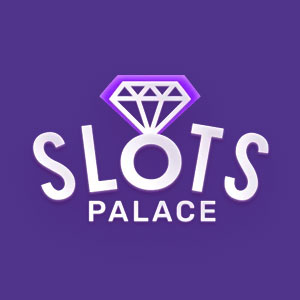Is Online Gambling Legal in Ireland?
Ireland is divided into two regions with different gambling laws: the Republic of Ireland and Northern Ireland. The Republic is in the process of modernizing its gambling framework, while Northern Ireland follows UK law through the UK Gambling Commission. Because the laws differ, the speed and handling of withdrawals can also vary between the two.
Republic of Ireland
Online gambling is legal in the Republic of Ireland, though the laws are still being updated. The Betting Act regulates betting activity, and later amendments expanded oversight to online operators. A new Gambling Regulatory Authority of Ireland is in development and will eventually take full control of licensing, compliance, and consumer protection. Until then, most online casinos available in the Republic operate under international licenses.
Quick history:
- 1931: Betting Act introduced to regulate land-based bookmaking.
- 1956: The Gaming and Lotteries Act addressed slot machines, lotteries, and bingo.
- 2003-2013: Calls for reform increased as online gambling grew in popularity.
- 2015: Betting (Amendment) Act extended oversight to remote betting and online operators.
- Ongoing: Preparations for the Gambling Regulatory Authority to modernize laws.
Northern Ireland
Northern Ireland follows different rules. Gambling is covered by legislation written for land-based betting. Online gambling is not directly regulated under that framework, but players can use online casinos licensed by the UK Gambling Commission. UKGC oversight sets strict standards for fairness, payments, and withdrawal handling, giving Northern Irish players strong protections when cashing out winnings.
Background in brief:
- 1920s-1930s: Gambling rules largely followed Great Britain, but regulation was limited.
- 1985: The Betting, Gaming, Lotteries and Amusements Order became the main piece of legislation, setting restrictions on betting shops, lotteries, and gaming.
- 2005: The UK Gambling Act modernized gambling law in Great Britain but did not extend to Northern Ireland, leaving the 1985 Order in place.
- Present: The UK Gambling Commission does not regulate casinos based in Northern Ireland, but players typically use UKGC-licensed online casinos that operate across the UK. In practice, NI players benefit from UKGC oversight, even though the local law has not yet been updated.
Gambling Regulators and Licensing in Ireland
In the Republic of Ireland, oversight is still developing, while Northern Ireland relies on the UK Gambling Commission (UKGC). These differences shape which casinos can operate legally and how withdrawals are protected.
Republic of Ireland
In the Republic, gambling oversight is shifting toward a new system. Historically, the Department of Justice has managed regulation through the Betting Act and its amendments. Remote operators must register and pay local betting duty, but there is not yet a single, dedicated gambling authority.
The Gambling Regulatory Authority of Ireland (GRAI) is being developed to change that. Once operational, the GRAI will be responsible for licensing casinos, monitoring compliance, enforcing responsible gambling, and setting standards for payments. For withdrawals, this means players can expect stronger protections and clearer rules on how quickly funds must be released.
Until the GRAI takes full control, most casinos accessible in the Republic operate under international licenses. These include the Malta Gaming Authority (MGA), Curacao eGaming, and Anjouan. International regulators allow operators to legally serve Irish players while providing their own rules for withdrawals. In practice, this often means:
- MGA casinos offer stronger consumer protections and faster processing, since the regulator enforces strict payout standards.
- Curacao and Anjouan casinos provide broader access and sometimes more payment methods, including crypto, but protections are lighter.
Players in the Republic are protected under Irish law only in a limited sense until the GRAI is active. Much of the practical protection comes from whichever international regulator the casino holds a license with.
Northern Ireland
Northern Ireland follows the United Kingdom’s regulatory system. Online casinos must be licensed by the UK Gambling Commission (UKGC) to legally operate. The UKGC is one of the strictest regulators worldwide, requiring operators to:
- Keep player funds separate from business accounts.
- Provide transparent withdrawal rules and timeframes.
- Submit to regular audits and compliance checks.
- Offer independent dispute resolution to players.
This level of oversight directly benefits Northern Irish players. Withdrawals are processed more transparently, delays are harder for casinos to justify, and players have a regulator to escalate complaints if payouts are withheld unfairly.
Local vs International Licensing
For Irish players, the casino landscape is a mix of locally recognized operators and internationally licensed platforms.
- Republic of Ireland: Until the new authority is active, most players use casinos licensed abroad. These offshore licenses make international platforms accessible, often with faster payment methods such as e-wallets and cryptocurrencies.
- Northern Ireland: Players generally use UKGC-licensed casinos, which guarantee stricter protections but may offer fewer alternative payment options, particularly for cryptocurrencies.
Many players in both regions choose offshore casinos for their wider selection of payment methods and faster processing options, even though regulatory protections are often weaker than those under the UKGC.


